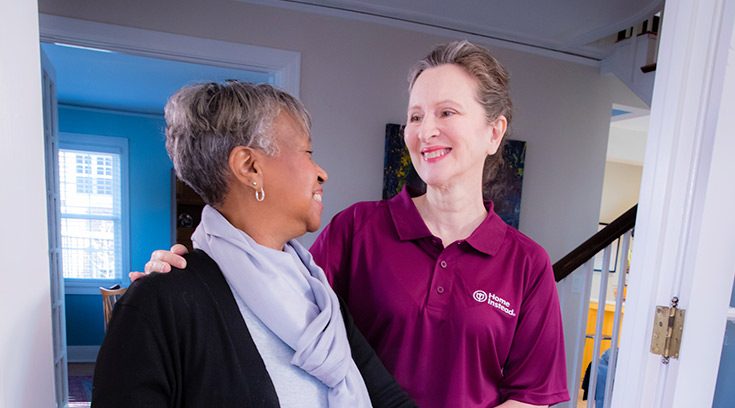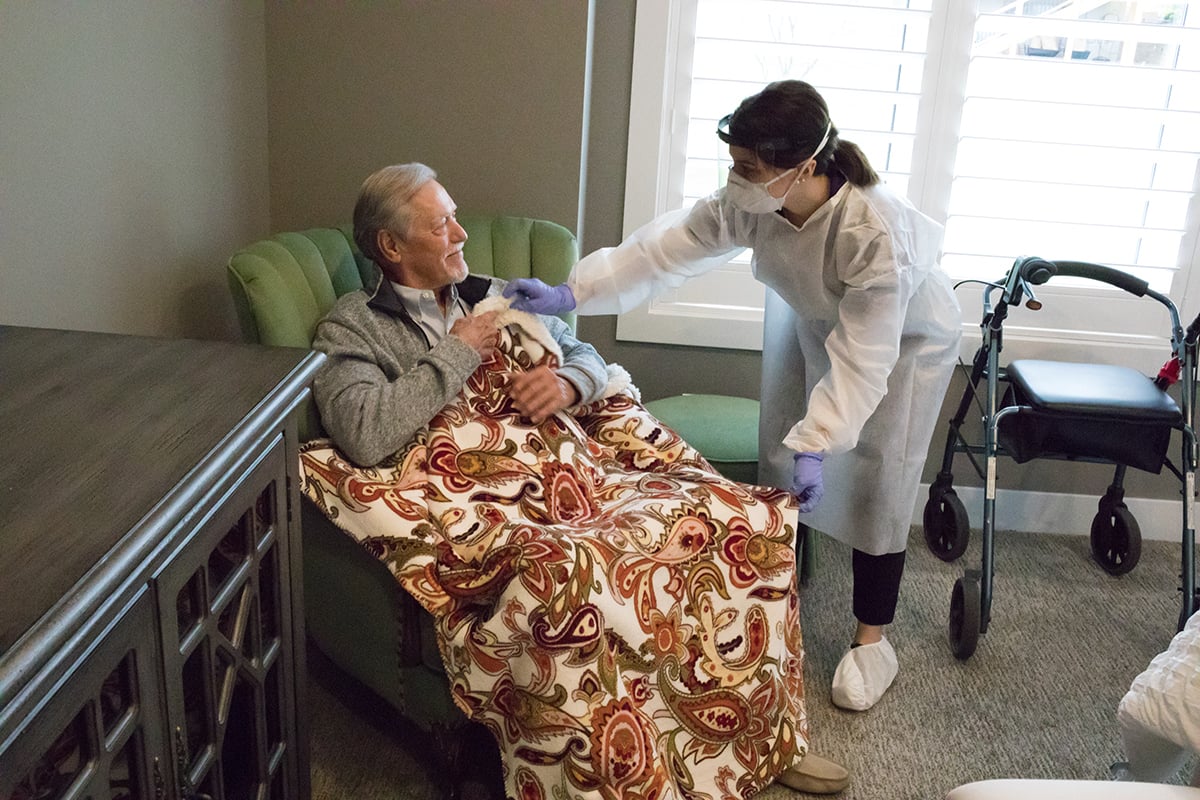Older adults and caregivers are usually two of the most likely groups of people to get sick during cold and flu season. A combination of weakened immune systems and togetherness result in a lot of shared germs. But, there are ways to limit exposure to common viruses and boost the immune system.
Seasonal influenza, or what is commonly known as the flu virus, can cause serious complications for older adults and those with chronic health issues. In fact, those 65+ who get it are far more likely to end up in the hospital and are at greater risk for stroke, heart attack and even death.
To help avoid the flu, it's important to not only make sure your loved one has received their yearly vaccine (it can take two weeks to work), but to also know the telltale signs of illness.
Flu often brings a sudden onset of not feeling well (malaise) and weakness in older adults. According to WHO, the following symptoms are most common with influenza:
Fever
Headache
Sore throat
Runny nose
Dry cough
Muscle or joint pain
Unlike the common cold, coughing can be severe and can last two or more weeks. Most people infected with the flu recover within a week without complications; however, older adults are at higher risk for long-term complications.
Check out the current flu activity in your area.
Flu, RSV or COVID-19?
Knowing whether you or an aging loved one is coming down with influenza, RSV or COVID-19 can sometimes be tricky since all three viruses affect the respiratory system. But there are key differences among the symptoms and their onset. With each illness, adults aged 65 and over and individuals with underlying health and/or chronic conditions, are at a higher risk of becoming sick.
Respiratory Syncytial Virus (RSV) infections are particularly dangerous to those with chronic heart or lung disease and those with weakened immune systems. According to the CDC, RSV infections display milder, cold-like symptoms that can develop into a lung infection or pneumonia over time.
COVID-19 symptoms are similar to those of influenza, with the primary difference being the loss of taste and/or smell. As individuals age, sensory loss is common; therefore, aging adults experiencing any of the following symptoms or any abnormalities, should contact a primary care physician and consider being tested for COVID-19. Symptoms may be noticed 2-14 days after exposure and can range from mild to severe.
COVID-19 Symptoms
According to the Public Health Agency of Canada and the World Health Organization (WHO), people with these symptoms may have COVID-19.
- Fever
- Dry cough
- Fatigue
- Shortness of breath
- Muscle aches or pains
- New loss of taste or smell
- Headache
- Sore throat
- Congestion or runny nose
- Diarrhea
- Nausea or vomiting
- Rash on skin or discoloration of fingers and toes
6 Ways to Limit Viral Exposure
1. Wear a mask. Masking is critically important in public spaces, but wearing a mask at home when visitors come over (ask them to wear one too) over will help decrease any potential exposure.
2. Avoid crowds and unnecessary travel. Limit visitors and outings to only necessities. Consider online ordering with porch delivery or enlist the help of a Care Professional to run errands and grocery shop.
3. Practice proper handwashing. Wash hands often for at least twenty seconds with soap and water. To prevent the spread of any virus, wash hands after blowing your nose, coughing or sneezing; after being in public; before and after caring for someone who is sick.
4. Practice social distancing. When outings are required, be sure to stay six feet from one another and wear a mask for extra protection.
5. Stay home if ill or not feeling well. Now is not the time to become complacent. If you or another family member or friend feel ill, or have knowingly been exposed to either virus, avoid contact with others. These viruses can be spread up to two days before symptoms present and, in almost all cases, they remain contagious for a minimum of seven days.
6. Add moisture to your air. Viruses tend to linger longer in dry air. A Yale School of Medicine study suggests that increasing water vapor in the air through humidifiers is a potential strategy to reduce flu symptoms and speed recovery.
5 Tips to Boost the Immune System
Older adults have weaker immune systems. Its possible family caregivers do as well because of stress and lack of sleep, which are common among those caring for others. These tips can help improve immune systems.
1. Stay Hydrated. Hydration plays a vital role in keeping our bodies well.
2. Consider Dietary Supplements. Vitamin C is known for its antioxidant properties and vitamin B12 is an energy producer. Many older adults, 60 or older, have vitamin B12 deficiency.
3. Eat a Balanced Diet. Eat whole foods rich in key nutrients like zinc, iron, protein and vitamins C and D. Avoid processed foods like packaged cookies, meats and chips. Start with these tips.
4. Get Enough Sleep. Sleep is an essential element for a strong immune system. Lack of sleep decreases the body’s ability to fight off viruses. Studies show that people sleeping less than six hours per night are four times more likely to catch a cold than those who sleep seven hours a night.
5. Exercise. Exercising boosts the immune system and benefits the body. Try to incorporate these activities for a senior's mind, body and soul.
Get Vaccinated
Stay up to date with vaccines. People who are up to date with their vaccines are better protected from serious illness or other adverse health outcomes. Discuss timing of these preventative measures with a healthcare professional.
The Public Health Agency of Canada recommends individuals over 65 get a flu shot annually and individuals 6 months and above receive the initial series of the COVID-19 vaccine and stay up to date with boosters as necessary.
Vaccinations reduce the risk and severity of either virus, as well as reducing the risk of developing complications.
Of all things to be aware of this cold and flu season, it’s of utmost importance to listen to your body. Don’t hesitate to call a healthcare provider or schedule a telehealth appointment to discuss any influenza, COVID-19 or other health concerns. Remember it’s best to be proactive with all health concerns. You shouldn’t feel guilty for calling a physician or the nurse line.
Find more caregiving resources to help navigate your caregiving journey. For more information about COVID-19 and seasonal influenza, visit the Public Health Agency of Canada and the World Health Organization (WHO).
In-Home Care for Chronic Conditions

